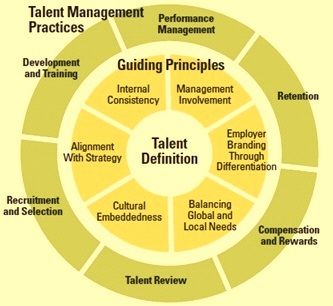When it comes to running a successful business, strategic management plays an integral role in aligning goals and objectives with the overall vision. Strategic management is the process of formulating and implementing strategies that help an organization achieve its goals.
In this article, we’ll delve into the fundamentals of strategic management, from its definition to how it’s applied in business planning.
What is strategic management?
Strategic management is the process of identifying an organization’s goals and objectives, developing strategies to meet them, and allocating resources and efforts to achieve these objectives. It involves the formulation, implementation, and review of strategies that align with the organization’s mission and vision.
The importance of strategic management
Strategic management enables organizations to anticipate changes in their environment and take advantage of opportunities. It helps organizations to stay competitive and achieve sustainable growth. Without strategic management, an organization may fail to keep up with changing market conditions or miss out on new opportunities.
The strategic management process
The strategic management process involves several steps:
1. Environmental analysis – This involves analyzing the internal and external factors that may impact the organization’s success.
2. Strategy formulation – This involves developing strategies that will enable the organization to achieve its goals and objectives.
3. Strategy implementation – This involves allocating resources and efforts to implement the strategies developed in the previous step.
4. Strategy evaluation and control – This involves monitoring and evaluating the success of the implemented strategies and making adjustments as needed.
Types of strategies
There are several types of strategies that organizations may use to achieve their goals, including:
1. Cost leadership – This involves focusing on reducing costs to be more competitive in pricing.
2. Differentiation – This involves creating unique products or services that sets the organization apart from competitors.
3. Focus – This involves targeting a specific segment within the market and tailoring the products or services to their needs.
4. Growth – This involves expanding the organization’s operations, either through market penetration or diversification.
Benefits of strategic management
Strategic management provides several benefits to organizations, including:
1. Improved decision making – Strategic management provides a framework for making informed decisions that align with the organization’s goals.
2. Enhanced competitiveness – Strategic management helps organizations to stay competitive by anticipating changes in the market and adapting accordingly.
3. Increased employee engagement – Strategic management provides a sense of direction and purpose for employees, improving their engagement and motivation.
Challenges of strategic management
While strategic management provides several benefits, it also presents several challenges, including:
1. Uncertainty – The future is often unpredictable, making it challenging for organizations to plan for the long term.
2. Resistance to change – Employees may be resistant to change, making it challenging to implement new strategies.
3. Resource allocation – Allocating resources to implement strategies may be challenging, particularly for smaller organizations.
You might find these FREE courses useful
- Strategic management: Be competitive
- Strategic Management Certificate | IIM Kozhikode | Coursera
- Strategic Leadership and Management Capstone
- Top Essentials Of Management And Strategic Planning Courses – Learn Essentials Of Management And Strategic Planning Online
Conclusion
Strategic management is a critical process that enables organizations to achieve their goals, stay competitive, and adapt to changing market conditions. By following the strategic management process and considering the different types of strategies available, organizations can become more successful and achieve sustainable growth.
